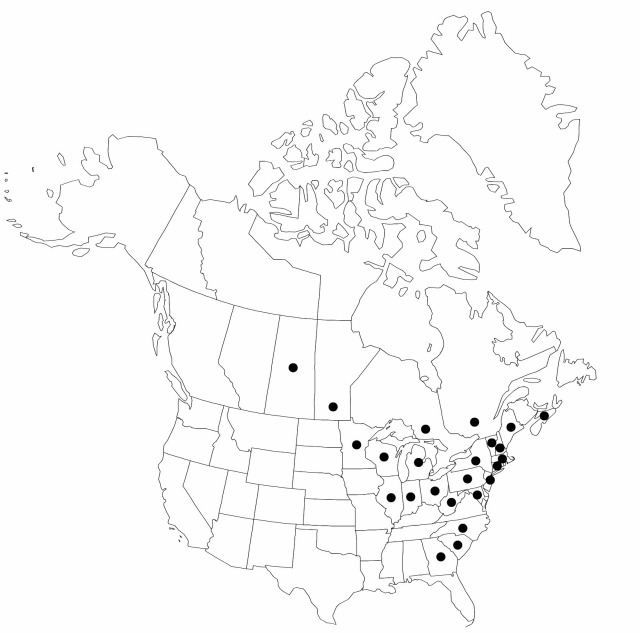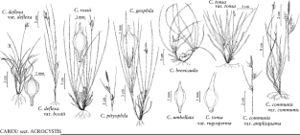familyCyperaceae
genusCarex
sectionCarex sect. Acrocystis
speciesCarex tonsa
varietyCarex tonsa var. rugosperma
Difference between revisions of "Carex tonsa var. rugosperma"
Novon 6: 118. 1996.
Common names: Carex à fruits rugueux
Basionym: Carex rugosperma Mackenzie Bull. Torrey Bot. Club 42: 621. 1915
FNA>Volume Importer |
FNA>Volume Importer |
||
| Line 11: | Line 11: | ||
|name=Carex rugosperma | |name=Carex rugosperma | ||
|authority=Mackenzie | |authority=Mackenzie | ||
| + | |rank=species | ||
|publication_title=Bull. Torrey Bot. Club | |publication_title=Bull. Torrey Bot. Club | ||
|publication_place=42: 621. 1915 | |publication_place=42: 621. 1915 | ||
| Line 38: | Line 39: | ||
-->{{#Taxon: | -->{{#Taxon: | ||
name=Carex tonsa var. rugosperma | name=Carex tonsa var. rugosperma | ||
| − | |||
|authority=(Mackenzie) Crins | |authority=(Mackenzie) Crins | ||
|rank=variety | |rank=variety | ||
| Line 53: | Line 53: | ||
|publication year=1996 | |publication year=1996 | ||
|special status= | |special status= | ||
| − | |source xml=https://jpend@bitbucket.org/aafc-mbb/fna-data-curation.git/src/ | + | |source xml=https://jpend@bitbucket.org/aafc-mbb/fna-data-curation.git/src/f50eec43f223ca0e34566be0b046453a0960e173/coarse_grained_fna_xml/V23/V23_1013.xml |
|genus=Carex | |genus=Carex | ||
|section=Carex sect. Acrocystis | |section=Carex sect. Acrocystis | ||
Revision as of 20:04, 16 December 2019
Leaf blades bright green, much longer than culms, herbaceous, scabrous to papillose adaxially. Perigynia pubescent on beak and body.
Phenology: Fruiting mid Apr–late Jun.
Habitat: Open, dry, acidic, sandy and rocky meadows, roadsides, dunes, ridges, heathlands, savannas, pine, oak, and poplar woodland edges
Elevation: 50–1000 m
Distribution

Man., N.S., Ont., Que., Sask., Conn., Ga., Ill., Ind., Maine, Md., Mass., Mich., Minn., N.H., N.J., N.Y., N.C., Ohio, Pa., S.C., Vt., W.Va., Wis.
Discussion
Carex tonsa var. rugosperma has long been known as C. rugosperma but C. tonsa has priority. The two varieties of C. tonsa may occur together; intermediates are found occasionally. Plants with virtually glabrous perigynia may have long, scabrous leaves. Plants with a pubescent perigynia apparently never have coriaceous, short, and nearly smooth leaves.
Selected References
None.
Lower Taxa
None.
